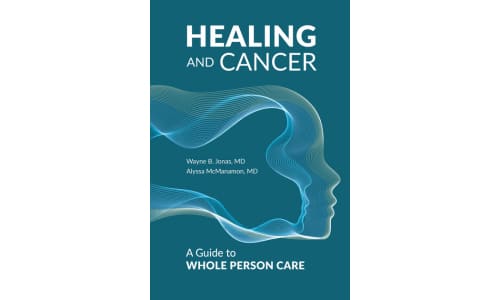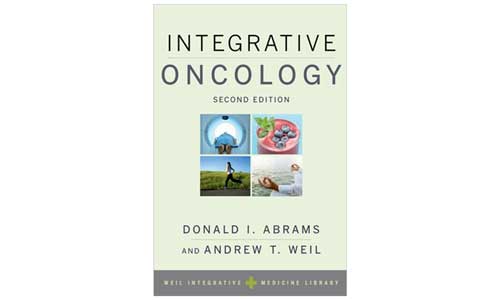Acupressure involves applying pressure on specific places on your body to relieve several side effects of cancer and cancer treatments.
How do experts use acupressure?
Both medical groups and integrative experts provide recommendations for acupressure in treating people with cancer. Learn more about the approaches and meanings of recommendations: Integrative Oncology Programs and Expert Guidelines ›
Clinical practice guidelines
International Trustworthy Traditional Chinese Medicine Recommendations (TCM Recs) Working Group
Acupuncture for cancer pain: an evidence-based clinical practice guideline ›
A weak recommendation for the combination treatments with acupuncture/acupressure to reduce pain intensity, decrease the opioid dose, and alleviate opioid-related side effects in moderate to severe cancer pain patients who are using analgesics
NCCN Guidelines for Patients®: Nausea and Vomiting Version 1.2016 ›
The version 1.2016 guidelines for nausea and vomiting state that acupressure is a complementaryin cancer care, complementary care involves the use of therapies intended to enhance or add to standard conventional treatments; examples include supplements, mind-body approaches such as yoga or psychosocial therapy, and acupuncture therapy used to treat nausea and vomiting.
NCCN guidelines for survivorship care include acupressure as a therapy for myofascial pain.
The 2017 Society for Integrative Oncology clinical practice guidelines regarding breast cancer patients states that acupressure can be considered as an addition to antiemetic drugs to control nausea and vomiting during chemotherapy.
Researchers from these organizations came to consensus on these recommendations:
- Acupressure may be offered to patients experiencing pain during systemic therapy for cancer treatment (moderate recommendation).
- Acupressure may be offered to patients experiencing chemotherapy-induced peripheral neuropathy from cancer treatment (weak recommendation).
Inconclusive evidence to make recommendations for or against acupressure to improve anxiety symptoms in people with cancer regardless of when in the course of care
During cancer treatment: no recommendation for or against acupressure to reduce the severity of cancer-related fatigue
After cancer treatment: conditional recommendation for acupressure to manage symptoms of cancer-related fatigue
Published protocols, programs, and approaches
Acupressure is used in programs, approaches and protocolsa package of therapies combining and preferably integrating various therapies and practices into a cohesive design for care from these integrative oncologists, drawing from both scientific research and observations from years or even decades of treating people with cancer.
Keith Block, MD
Block KI. Life over Cancer: The Block Center Program for Integrative Cancer Care. New York: Bantam Dell. 2009.
The integrative Block Program has recommendations to people who are at different places along the cancer continuum:
- Those who’ve been recently diagnosed
- Those in treatment
- Those who’ve concluded treatment and need to remain vigilant to prevent recurrence
Neil McKinney, BSc, ND
McKinney N. Naturopathic Oncology, Fourth Edition. Victoria, BC, Canada: Liaison Press. 2020.
This book includes descriptions and uses of many natural and complementary protocols for cancer in general and for specific cancers. It also includes information on integrative support during conventional cancer treatment.
Dr. McKinney recommends acupressure for chemotherapy-related nausea.
Other recommendations
Chinese medicine clinical service
A survey of experts indicated a positive consensus to recommend acupressure for reducing fatigue among palliative cancer patients.
Current Oncology Reports
An expert review of evidence suggests that acupressure “might have a potential role in alleviating cancer-related fatigue.”2David A, Hausner D, Frenkel M. Cancer-related fatigue-is there a role for complementary and integrative medicine? Current Oncology Reports. 2021 Nov 7;23(12):145.
Jonas and McManamon

Jonas WB, McManamon A. Healing and Cancer: A Guide to Whole Person Cancer Care ›. Rodin Books. 2024.
Acupressure is listed under Supportive and Integrative Services.
Integrative oncology review

Abrams DI, Weil A, editors. Integrative Oncology, Second Edition ›. New York: Oxford University Press. 2014.
This book by integrative medicine experts and CancerChoices advisors Donald Abrams, MD, and Andrew Weil, MD, desribes a wide variety of complementary interventions to conventional cancer care, including a chapter from the perspective of a cancer patient.
Abrams & Weil discuss acupressure’s benefit for nausea and vomiting from chemotherapy or radiotherapy.
Traditional medicine
Acupressure is based on acupuncture, a traditional Chinese medicine therapy. A recommendation for use of acupressure by a Chinese medicine clinical service is included above on this page.
Learn more about traditional Chinese medicine and how to find a practitioner: Traditional Chinese Medicine and Professionals in Cancer Care ›
Other expert assessments
Current Oncology Reports
An expert review of evidence suggests that acupressure “might have a potential role in alleviating cancer-related fatigue.”3David A, Hausner D, Frenkel M. Cancer-related fatigue-is there a role for complementary and integrative medicine? Current Oncology Reports. 2021 Nov 7;23(12):145.
References

